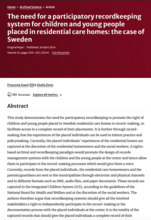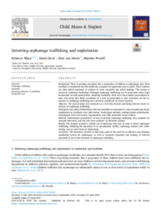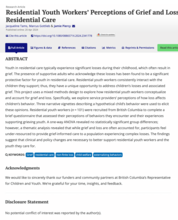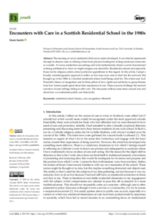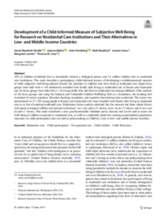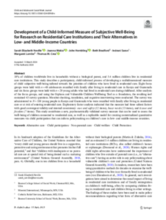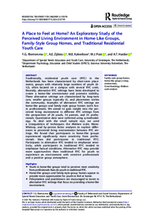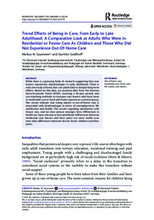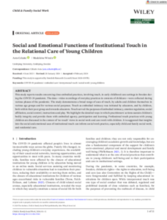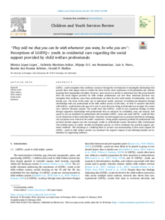Displaying 41 - 50 of 1511
This study demonstrates the need for participatory recordkeeping to promote the right of children and young people placed in Swedish residential care homes to record-making, to facilitate access to a complete record of their placements. It is further through record-making that the experiences of the placed individuals can be used to inform practice and policymaking.
Although orphanage trafficking can be prosecuted under legal frameworks in some jurisdictions, including Cambodia, there have been limited prosecutions to date. One factor that likely contributes to a lack of prosecution is poor detection, yet the indicators of orphanage trafficking have not been considered by extant research. The current study was conducted as a first step towards providing evidence-based indicators of orphanage trafficking.
This project uses a mixed methods design to explore how residential youth workers in British Columbia conceptualize and account for grief and loss. Specifically, the authors explore service providers’ perceptions of how loss affects children’s behavior.
In this article, the author adopts a broadly autoethnographic approach to reflect on how boys (now men in their late 40s and early 50s) brought up in the 1980s in a Scottish residential school recall being cared for.
This study describes a participatory, child-informed process of developing a multidimensional measure of child subjective well-being tailored towards the priorities of children who have lived in residential care. The study was conducted with focus groups in Kenya and Guatemala.
This study describes a participatory, child-informed process of developing a multidimensional measure of child subjective well-being tailored towards the priorities of children who have lived in residential care. The survey was administered to 180 young people in Kenya and Guatemala who were reunified with family after living in residential care or at risk of entering residential care.
The authors of this study aimed to gain insight into the perceived living environment in different residential youth care settings from the perspectives of 26 youth, 14 parents, and 35 professionals in the Netherlands.
This article addresses two issues: whether the inequalities faced by cared for children will persist in different stages of their lives and whether these inequalities are dependent on the specific out-of-home care setting, i.e. residential or foster care. The authors examine data from the German Socio-Economic Panel (SOEP), covering a 50-year period.
This study reports results concerning close embodied practices, involving touch, in early childhood care settings in Sweden during the COVID-19 pandemic.
The focus of this study was to understand youths’ processes of resilience-development through relationships with care professionals in the child welfare system. In this study, the authors held 15 narrative interviews with LGBTQ+ youth between the ages of 14 and 21 years that were living in residential care in Spain.

